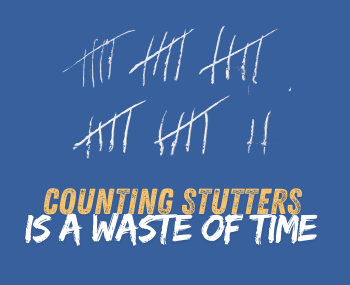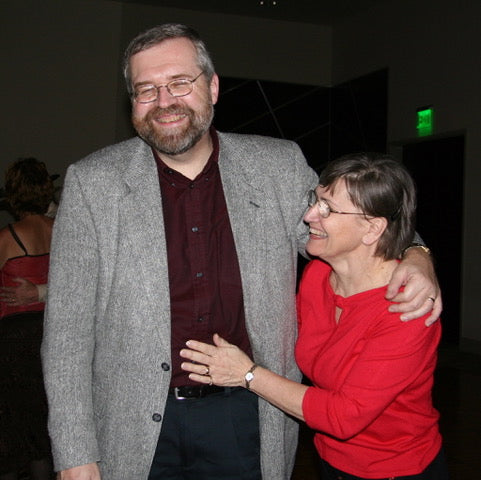Practical Thoughts Blog

Jan 04, 2026
Understanding Stuttering Through A Wide-Angle Lens: Information for Parents and Caregivers
As a parent or caregiver of a child who stutters, it is natural to be concerned about your child's speech and curious about how to help them. We hope this blog is one of many resources that can build your knowledge and understanding of your child’s experience of stuttering. Because stuttering is a neurologically based speech difference, there are no easy ways to help children...

Apr 21, 2025
Counting Stutters Is a Waste of Time!
When assessing stuttering, counting stutters does not reflect the overall experience of the person who stutters. Speech pathologists can stop counting stutters because listeners cannot observe stutters that a person experiences, the nature of stuttering is that it is always variable, some people who stutter can appear fluent by altering their communication in unhelpful ways, and stuttering is a complex communication difference, and cannot be...

Apr 07, 2025
If Stuttering Is Verbal Diversity, then Is It Still a Disorder?
Stuttering is a disorder and a difference. Stuttering is a disability if the person who stutters experiences negative impact because of their stuttering. Confusion regarding specific terminology in the neurodiversity era provides us an opportunity to clarify some of the terminology that can be confusing for clinicians and caregivers alike. These discussions about terminology can enhance our understanding of the life experiences of those who...

Feb 26, 2025
The Neurodiversity Affirming Movement and its Implications for Stuttering
Whether it’s stuttering or autism, the neurodiversity affirming approach teaches us that it’s acceptable for people to communicate in a variety of ways. The neurodiversity affirming movement has many implications for stuttering that should be considered.

Feb 19, 2025
Remembering Our Dear Friend, Dr. Bob Quesal
Many of our readers recognize Bob as the co-author of the OASES and the Minimizing Bullying program. Bob’s contributions to the field are truly groundbreaking [see several links below]. Throughout his career, he championed the voices of people who stutter, from his earliest writings that reminded speech-language pathologists not to forget people who stutter, to his longstanding studies on the life experiences of people who...

Feb 11, 2025
An Ode to Cleve: A Novel that Supports Stuttering as Verbal Diversity
After having rewritten the story, I realized that it is not about verbal diversity alone; it also reflects the importance of acknowledging other types of neurodiversity and all of the ways in which both children and adults who are different may be marginalized or discriminated against. Perhaps Nick’s courage can serve as a model for others who find themselves in a similar situation.

Jan 21, 2025
Stuttering - From Shame and Anxiety to Confident Authenticity
Stoic philosophy has taught me first and foremost to identify what is in my control and what is not, and to live and work focused on what is in my control. I do not have control over whether I stutter or not, but I have control over how I react or respond to my stuttering.

Jan 10, 2025
Stuttering: It's a Fascinating History!
These examples are just a tiny sampling of the rich and fascinating history of stuttering. Learning about them can create opportunities for you to help your students explore their own beliefs and feelings about stuttering. In addition, and perhaps even more importantly, your students can learn that they are not alone--and they are certainly not "less than."

Nov 19, 2024
Caregivers want me to work on fluency. What do I say?
Many parents and caregivers contact speech therapists because they want their children to stop stuttering. This is understandable, and no one could blame them for having this desire. Unfortunately, this is not generally something that they can have, for we know that there is no cure for stuttering in school-age children, adolescents, and adults. This basic fact is one of the reasons that we so...

Oct 17, 2024
If I don’t count stutters, how can I qualify people for therapy?
You’ve probably heard that our field is moving away from using stuttering frequency counts as a way of measuring stuttering. In our opinion, this is a very good development—it is something that we have been encouraging for quite a while now, and it is increasingly important as we come to view stuttering as an example of Verbal Diversity. (For more discussion of stuttering as Verbal...

Sep 17, 2024
Stuttering as Verbal Diversity: How Does this Change our Role as SLPs?
The field of speech-language pathology is changing. As we shift away from the medical model that sees stuttering as a pathology, we are on a journey toward becoming neurodiversity-affirming allies. Creating stutter-affirming environments requires a fundamental shift in how we perceive and interact with stuttering. These changes in perspective not only support individuals who stutter but also foster an inclusive atmosphere that embraces communication diversity....

Jul 25, 2024
Shifting Perspectives About Stuttering
In the era of expanding our understanding of neurodiversity-affirming stuttering therapy, a first step is to make certain we, as speech-language pathologists (SLPs), are approaching assessment and therapy from the perspective of the person who stutters. Their experiences inform our therapy planning. There are reasons why our past professional practices were based upon the listener's observations of stuttering, and there are three major reasons why...
